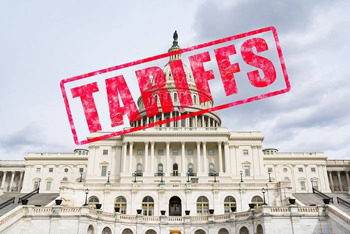By SEMA Washington, D.C., Staff
 The Trump Administration is threatening to impose 25% tariffs on $200 billion worth of Chinese imports, rather than the 10% tariffs previously announced. |
The Trump Administration is threatening to impose 25% tariffs on $200 billion worth of Chinese imports, rather than the 10% tariffs previously announced. The tariffs could be imposed as early as October. This third list would be in addition to 25% tariffs on $50 billion worth of products that are already authorized. The tariffs are being used as a negotiating tool in an effort to lower the U.S./China trade deficit and deter cybertheft of intellectual property by Chinese government and companies.
The U.S. government is currently imposing 25% tariffs on $34 billion worth of products under the 818 Harmonized Tariff Code listings. The subject product list includes miscellaneous metal and rubber parts for auto equipment, machinery, tools, measurement and medical devices. This first list is subject to exclusion requests: Docket USTR-2018-0025 (requests due by October 9, 2018).
The U.S. Trade Representative (USTR) is finalizing a second list covering the other $16 billion worth of products, to take effect in August. The list covers 284 tariff categories, including many types of plastics.
The USTR has identified a third list covering another $200 billion worth of products, subject to public comment. The list includes hundreds of consumer products, from fish to furniture and apparel. It also covers many auto parts, from engines and metal fasteners to tires, steering wheel components, rubber gaskets, transmission belts, brake pads, windshields and suspension springs. SEMA will submit comments in opposition to the tariffs and encourage companies to also submit comments, due August 17, 2018.
SEMA opposes the Chinese tariffs, along with steel/aluminum tariffs and threatened tariffs on imported autos/parts as misplaced and having the potential to impose significant harm on U.S. businesses and consumers. While it is important to identify and challenge unfair trade practices, tariffs are a form of taxation that lead to unintended trade retaliation and loss of American jobs.
For more information, contact Stuart Gosswein at stuartg@sema.org.





